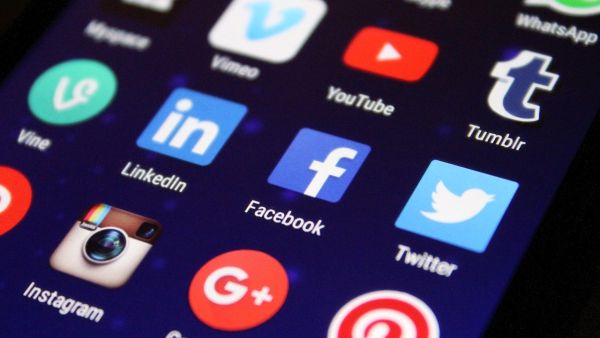As the novel coronavirus outbreak continues to lockdown millions of people around the globe, social media networks are increasingly reporting surging usage rates. Yet, the challenge of providing users with safe entertainment and accurate information hasn't been an easy one.
While Facebook is reporting a 70% rise in the time users are taking to browse through its posts, and WhatsApp is noticing a 40% spike in usage, social media platforms have been working so hard to ensure that users are not only enjoying their time during their home stays but also have access to accurate up-to-date COVID-19-related information from reliable sources.
Stay sharp: Social media sites see a surge in misinformation during coronavirus outbreak https://t.co/3uo5jUN1Ic pic.twitter.com/PLoR3iwicI
— Allconnect (@allconnect) March 29, 2020
After misleading information going viral several times across social media causing hundreds of people to lose their lives, whether by suggestions of consuming rubbing Alcohol to prevent the coronavirus or by promoting certain medical drugs to combat the deadly virus, moderators of the most popular social media networks have decided to dedicate more time and effort into fighting similar content and offer timely updates from global health organizations.
These platforms have also been innovating new tools that can help people committed to social distancing stay at their homes, offering them a number of ideas to pass their time constructively.
1. WhatsApp
#WHO introduces a new #coronavirus health alert messaging service in collaboration with @WhatsApp through which people can subscribe and get facts directly on their phones. Find out how to start a WhatsApp conversation about coronavirus with WHO.https://t.co/OApXG0tQW3
— Al Arabiya English (@AlArabiya_Eng) March 21, 2020
The popular messaging app has launched a free QA alert in collaboration with the World Health Organization and UN agencies, allowing users to receive accurate answers to their coronavirus-related questions.
The new tool has been available only in English so far, but Arabic, Chinese, French, Russian, and Spanish versions are expected to be released soon.
2. Twitter
Not only did Twitter offer a special "trusted information" tab for users, who type in the name of the coronavirus in the search bar, but it also announced several changes in its rules, crafting a new definition for harmful content so it includes fake information.
Twitter removes tweets by Brazil, Venezuela presidents for violating COVID-19 content rules https://t.co/DSKsCxFq83 pic.twitter.com/ahC2vZ24ZP
— The Verge (@verge) March 30, 2020
Following the application of its new policy, Twitter has removed several tweets posted by the Brazilian president, in which he addressed his people via video, calling on them to leave their homes and return to their work. He announced endorsing several drugs claiming they can cure the disease, but without conducting proper scientific experiments.
Similarly, the new policy took down tweets by former New York Mayor Rudy Giuliani and President of Venezuela.
3. Facebook
Famous for its live-video service, Facebook has finally enabled non-users to watch live videos using their mobile devices, a service that was formerly only available via desktop computers.
Facebook introduces new feature, allows non-users to live stream video amid Covid-19 scare https://t.co/yUUJDsz3K9
— Republic (@republic) March 28, 2020
The platform has also been reportedly developing audio-only live streaming services to keep its users entertained for as long as possible.
Additionally, Facebook has joined the fight against fake content that could endanger users' lives and is providing WHO-based updates to its users worldwide.
5. Messenger
Besides its instant messaging service, the Facebook owned application has worked with different parties to develop new tools that can help users acquire coronavirus-related information from reliable sources.
6. Snapchat
Fact or Myth? Snapchat’s New Game will Bust Coronavirus Myths https://t.co/bghuqjqRKu via @geekdashboard #TechNews #Snapchat #covid-19 #mythbuster
— Geek Dashboard (@geekdashboard) March 30, 2020
Introducing new creative tools, Snapchat users can now play games that help them learn facts related to the current pandemic, while highlighting fake ones that should be debunked. The new tool keeps users well-informed, in positive state and entertained.
7. TikTok
Gaining a new level of popularity over the last few weeks, TikTok has taken the chance to introduce a coronavirus safety dance.
TIKTOK: UNICEF Coronavirus Safety Dance! https://t.co/HUCSZhC3t9 via @YouTube
— JohnGrantHighSchool (@johngranths) March 15, 2020
Through this dance, users don't enjoy time with their friends and followers, but also have access to WHO updates related to the disease.







